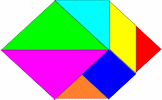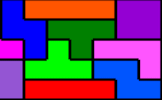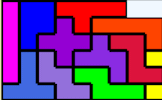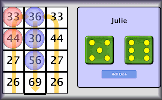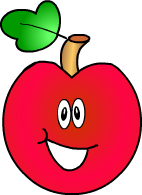|
Generate coloured select size then drag the shape you have generated onto the canvas below. |
|
[What are 7-pin Polygons?] Shapes which tessellate can completely cover a surface without overlapping. Which shapes tessellate? Drag the shapes to arrange them on the canvas so that they don't leave any gaps and don't overlap. Hold down the shift key or tick this while you drag to rotate the shape.
|
Take a screenshot of your tessellations for your notes. Background colour:
